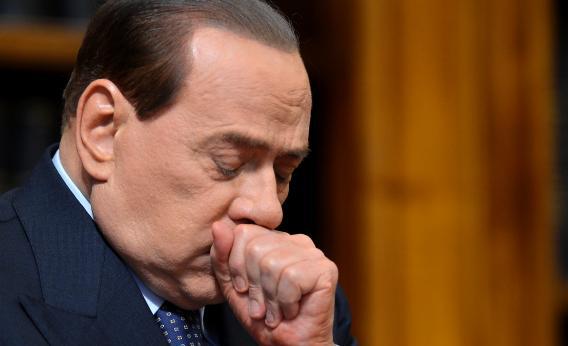Reading about the European Union’s new “grand vision” for resolving the crisis, I’m reminded of Silvio Berlusconi.
Remember him? He used to be Prime Minister of Italy. Non-Italians regarded that fact as a scandal, an illustration of everything that was wrong with Italian politics. And yet he won an election. I don’t quite want to say he won it fair and square, but he won it prevailing to the laws that existed in Italy. But the feeling in respectable circles was that the world needed an Italian partner it could work with, and that Italy was faced with financial vulnerability. So the European Central Bank in coordination with the governments of Germany and France basically staged a coup, making it clear to Italian politicians that they either had to ditch Berlusconi or have their financial system destroyed. So Berlusconi was duly replaced by Mario Monti, a center-right Italian political figure not deeply involved in partisan politics. This was broadly cheered at the time, and I think there’s every reason to believe that Monti is a better prime minister than Berlusconi. But looking back I think it was a major step down a disastrous road.
Back to the vision. Apparently it “will push for countries to remove the regulations and layers of bureaucracy that inhibit competition, keep young people out of the work force or make it difficult to start a new business.”
Now there’s some controversy about this idea on the merits. The overwhelming conventional wisdom among elites in Europe and the United States is that Europe suffers from overregulated labor markets. But there is a dissident group of people out there arguing that this consensus is mistaken. Personally, I’m onboard for the consensus. But this is not a monetary policy question. And the deeper the crisis has gotten, the more the European Central Bank has gotten itself involved with this question. Instead of pursuing a single mandate of price stability or a dual mandate of prices and employment, it’s implementing a two-target strategy that involves price controls and specific political outcomes. Basically countries that implement structural policies that ECB staffers favor are rewarded with less-inappropriate monetary conditions, and countries that challenge the ECB consensus are punished.
This is contrary to democratic values, plainly incompatible with sound monetary practice, and a terrible way to encourage sound structural reforms to boot.
A much much better path would be for the central bank to simply say there are some things it can guarantee and other things it cannot guarantee. High on the list of things the ECB can guarantee are robust continent-wide growth in nominal gross domestic product. Among the things the ECB cannot guarantee is the split between real output and inflation. A country that combines rapid NGDP growth with bad labor market policies will have a lot of inflation. A country that combines rapid NGDP growth with good labor market policies will have a lot of real growth. But the genius of this is that it’s true by definition and doesn’t require us to work out in advance which labor market policies are good and which are bad. Presumably people prefer to live in a country where nominal growth turns into real output rather than higher prices. But if the political system doesn’t deliver that outcome, that’s for the political system to work out.
Instead, the ECB is refusing to deliver what it’s supposed to deliver—nominal growth—and instead mucking around in decisions that should be none of its business, and it’s doing so in a way that’s going to make it impossible to tell which policies are actually working.
